Are you looking to formalize your working relationship with vendors? A well-crafted vendor service agreement can establish clear expectations and protect both parties' interests. By outlining the scope of work, payment terms, and confidentiality clauses, you ensure that everyone is on the same page and set the stage for a successful partnership. Dive into the details of creating an effective agreement and discover how to tailor it to suit your specific needs!

Agreement Overview
The vendor service agreement serves as a formal contract, outlining terms and conditions essential for business transactions between two parties: the vendor (the provider of goods or services) and the client (the entity receiving those goods or services). Key aspects include a detailed description of services to be rendered, payment terms specifying amounts and deadlines, and duration of the agreement, typically ranging from one year to multiple years. Compliance with local regulations, liability clauses, and confidentiality requirements are also crucial components. The agreement may specify performance metrics and evaluation criteria to ensure quality and accountability in service delivery. Initial negotiations often take place at the vendor's office, located in major cities such as New York or San Francisco, where stakeholders can discuss expectations and responsibilities in detail.
Scope of Services
A vendor service agreement outlines the scope of services provided by a vendor to a client. This document details the specific duties, responsibilities, and deliverables expected from the vendor based on the contractual agreement. For instance, a catering service may specify meal preparation for 100 guests during a corporate event in New York City, scheduled for March 15, 2024. Additionally, the agreement may include provisions for dietary accommodations, timely delivery, and on-site staffing during the event. Regular performance evaluations based on client feedback and adherence to state health regulations are typically incorporated to ensure quality assurance throughout the service duration. In this context, the terms delineate clear expectations to protect both parties while fostering a successful business relationship.
Payment Terms
Vendor service agreements often include specific payment terms that outline the conditions under which payment will occur for services rendered. Common terms may specify payment schedules, such as 30 days post-invoice (Net 30), or milestones linked to project completion. Additionally, specified penalties for late payments can be included, such as interest fees of up to 1.5% per month. Payment methods, including bank transfers, credit card payments, or checks, can also be detailed to ensure clarity. Geographic considerations, such as currency and taxation laws in specific jurisdictions, may further influence payment agreements. Defining procedures for disputes related to payments enhances mutual understanding and can prevent future conflicts. Providing contact information for both parties facilitates prompt communication regarding billing inquiries.
Confidentiality Clause
Confidentiality clauses in vendor service agreements protect sensitive information exchanged between parties. Essential terms include obligations to safeguard proprietary information, bind employees to confidentiality, and outline repercussions for disclosure. Specific definitions clarify what constitutes confidential information, such as trade secrets, client lists, and business strategies. Duration of confidentiality is crucial, usually extending beyond the termination of the agreement, often for several years. Jurisdiction and dispute resolution methods, like mediation or arbitration, ensure an efficient process in case of breaches. Vendors and clients, including corporations and startups, must ensure compliance with regulations such as GDPR to protect personal data shared during the service relationship.
Termination Conditions
Termination conditions in a vendor service agreement outline the specific circumstances under which either party can end the agreement. Common termination conditions include breach of contract (such as failure to meet service levels or payment obligations), insolvency (financial instability or bankruptcy), or mutual agreement between the parties. Additionally, certain agreements may allow for termination upon specific events such as a change in ownership, significant delays in service delivery exceeding a defined number of days, or failure to comply with applicable laws or regulations. Providing clear notice requirements (e.g., 30 days written notice) and stating any obligations upon termination, such as the return of confidential information, can help protect both parties' interests.
Letter Template For Vendor Service Agreement Samples
Letter template of vendor service agreement for digital marketing services.
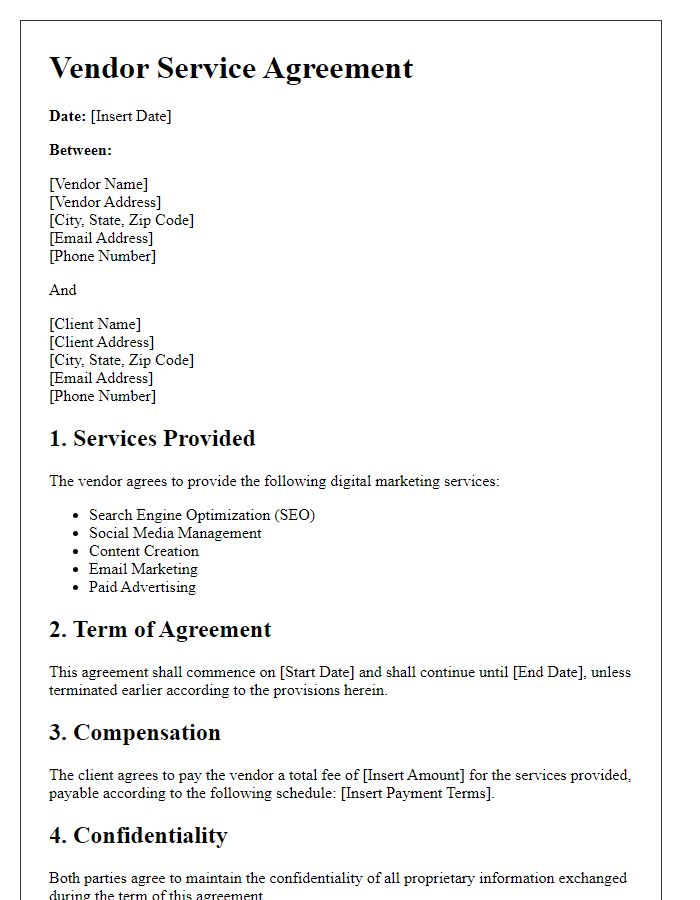
Letter template of vendor service agreement for logistics and transportation.
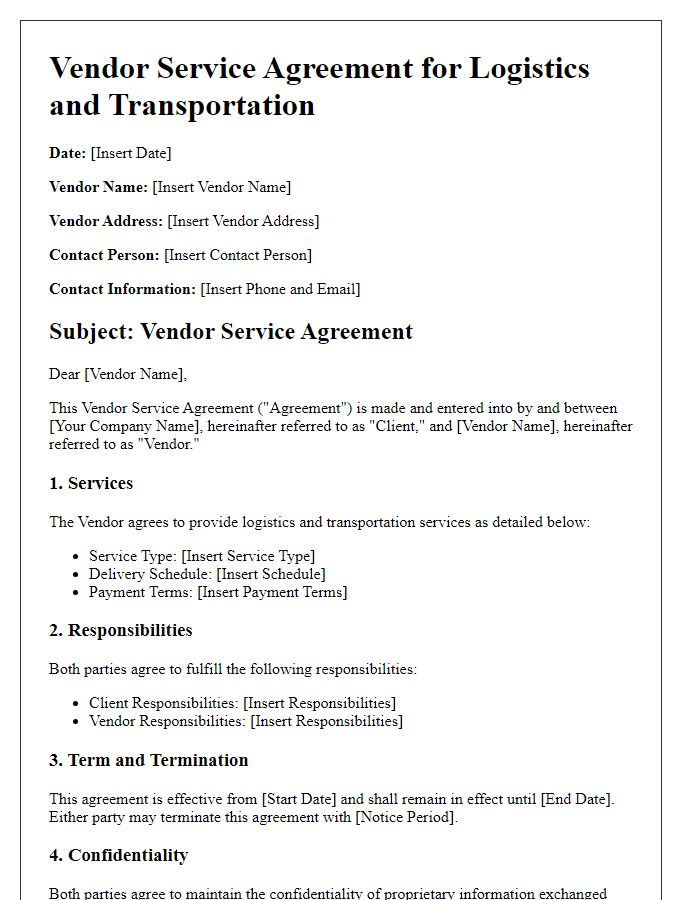

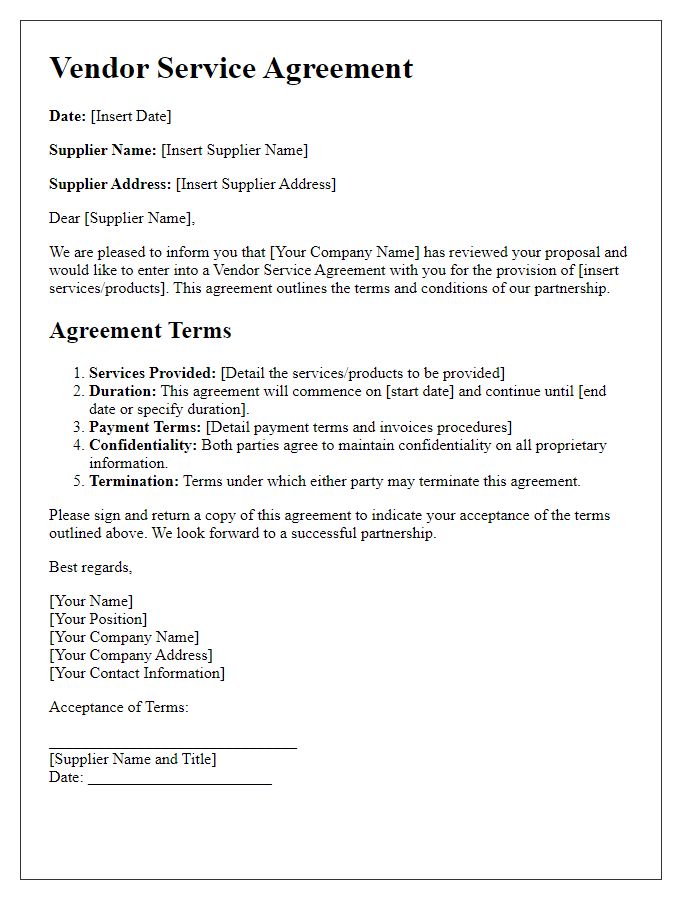
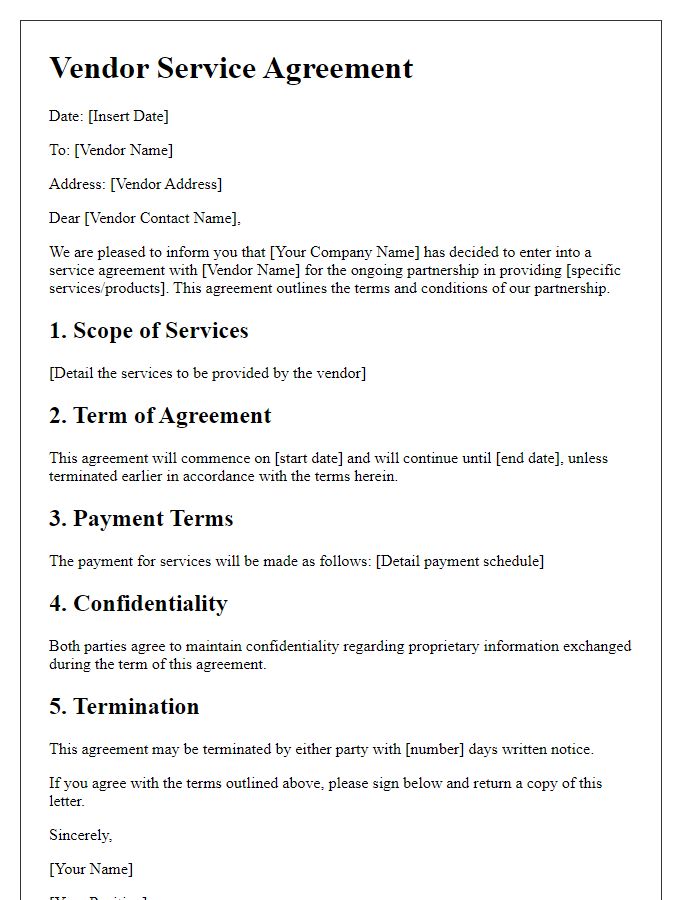
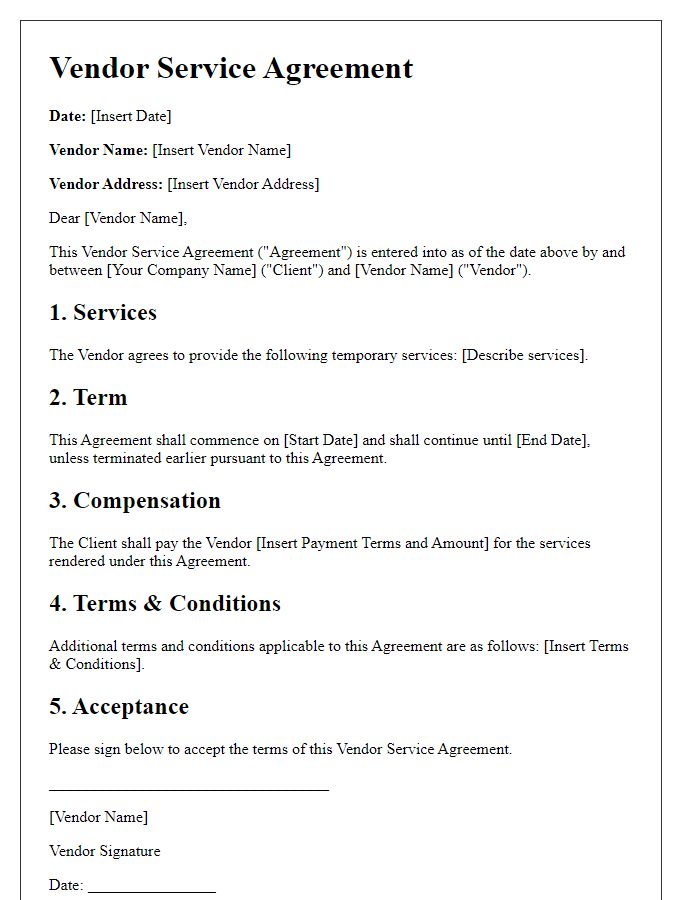
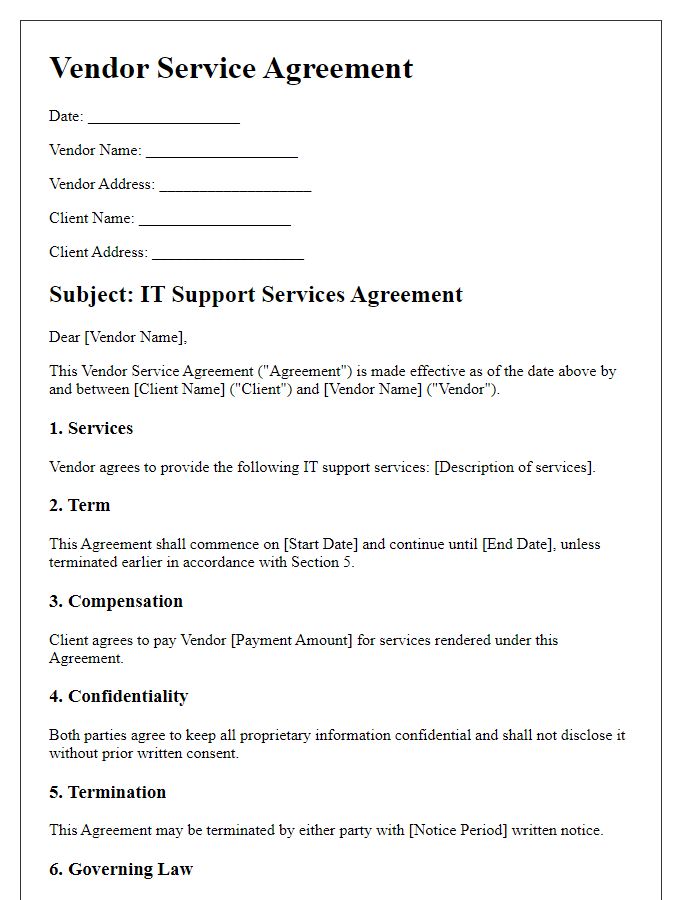
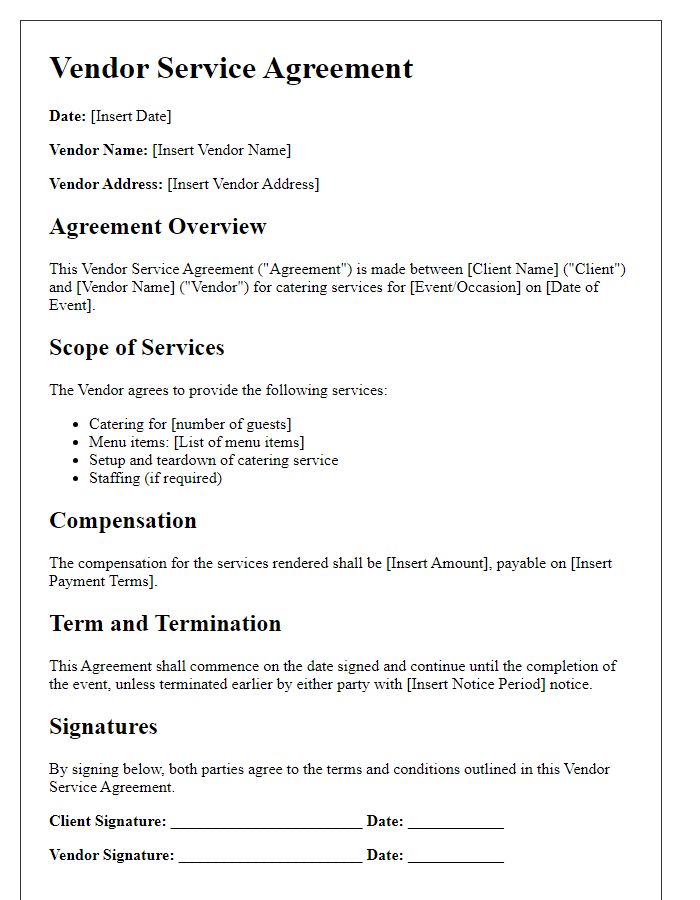
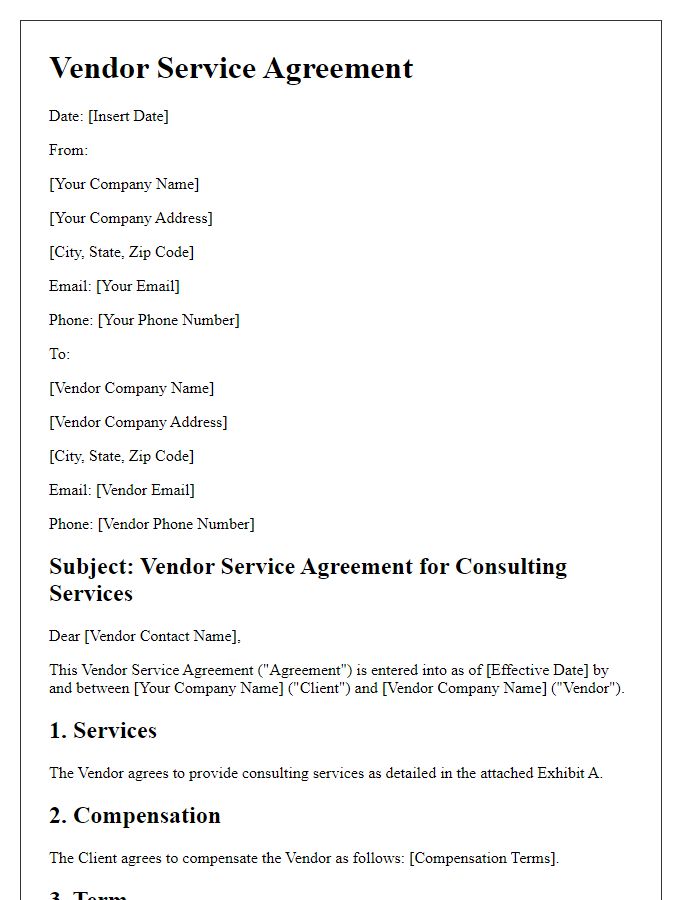
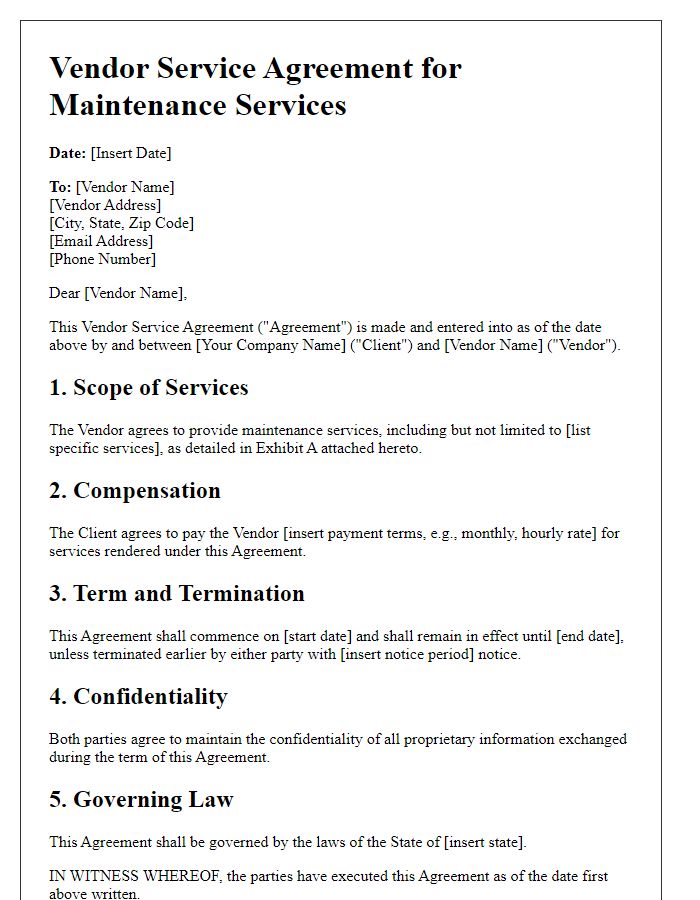
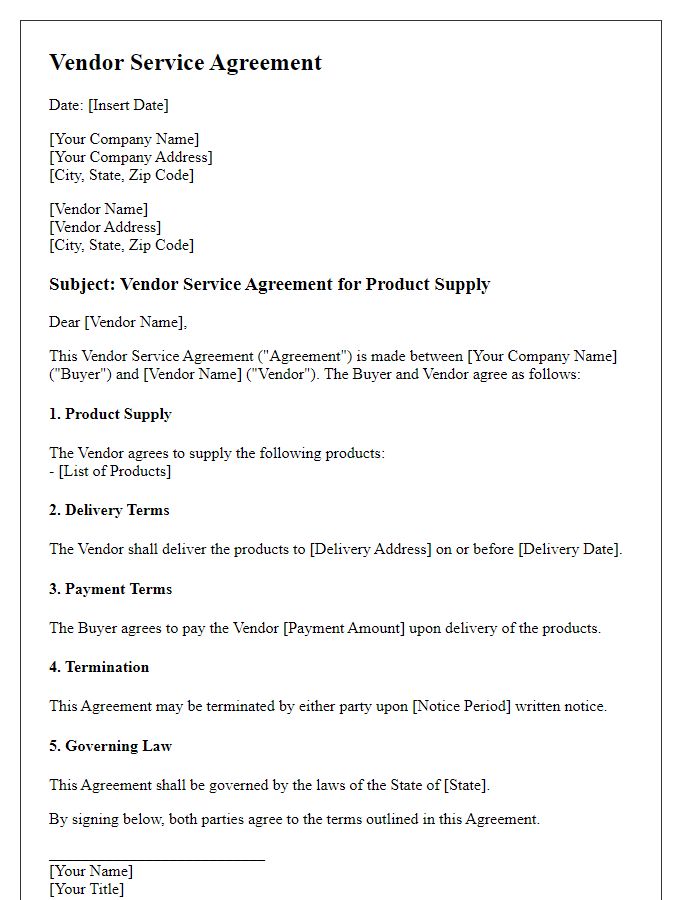


Comments